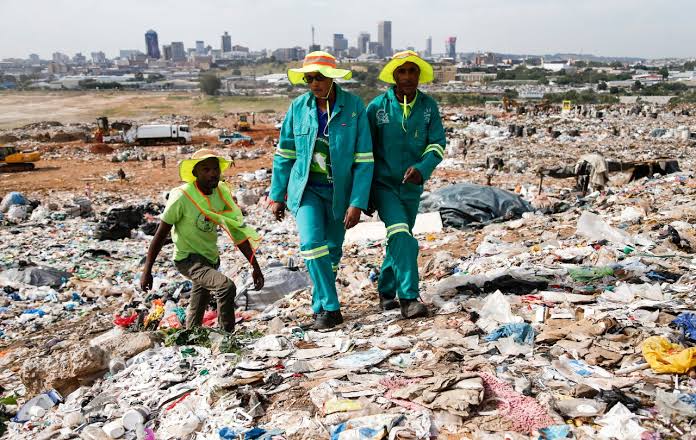By Nkhensani Chauke
With parts of South Africa and the world seemingly drowning in waste, separating rubbish at its source has become one of the best practices to deal with rubbish.
Today, South Africa marks National Recycling Day with Gauteng environment MEC Shyla Peters encouraging citizens to capitalise on recyclable waste products and generate incomes.
“Separate waste that you generate at home into steel, glass, plastics and paper. Sell your recyclable waste materials to your nearest recycling buyback centre and generate an income,” she said
Peters has encouraged communities to participate in the National Recycling Day by sharing their clean-up activities of the before and after pictures or videos on social media, including her department’s platforms.
Peters also encouraged residents who could not recycle, to give their recycling materials to the waste pickers in their area and to share information about the benefits of recycling.
“Let’s make recycling a way of life in Gauteng- we can do it,” she said
Meanwhile, the Organics Recycling Association of South Africa (Orasa) in the Western Cape has highlighted the lack of on organic waste recycling by residents.
Organic waste is anything that was once alive such as food waste, garden refuse, wood, paper and compostable packaging.
“We need to rethink waste. In the Western Cape more than 40% of all waste delivery landfills is organic waste into compost, we have the power to reverse climate change and replenish the health of our soil,” said Orsasa chairperson Melanie Ludwig.
Ludwig has urged households to practice home composting to create their own compost that could be used in their gardens on a greater scale to ensure sustainability and grow wholesome food for less fortunate communities.
She added that anaerobic decomposition of organic material in landfills and leachate production was driving the climate crisis, and surface and water contamination. It could be addressed by the reduction of organic waste in landfills.
Ludwig has urged for a new approach to all waste streams in South Africa, including separation at source to ensure that each waste stream could be effectively and efficiently recycled, composted or reused.
INSIDE POLITICS

